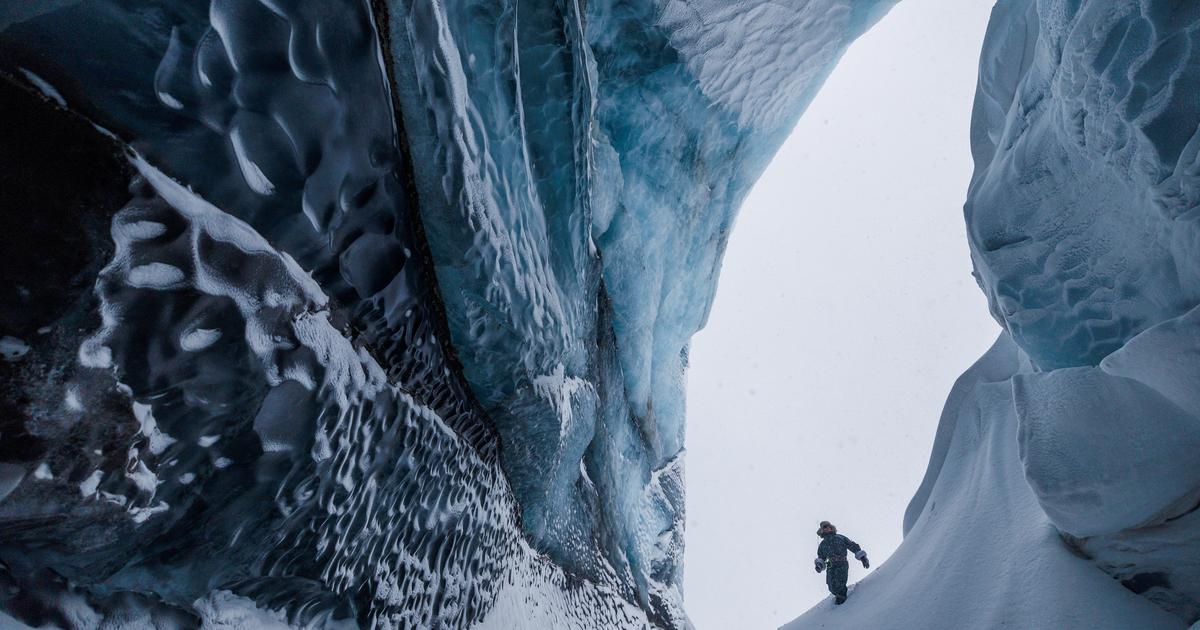The glaciers melted at a spectacular speed last year, a phenomenon which seems for the moment unstoppable, alerted the UN this Friday while several indicators of climate change show records.
In its annual report on the state of the global climate, the United Nations World Meteorological Organization (WMO) highlights global changes on land, in the oceans and in the atmosphere, caused by the levels record number of greenhouse gases that trap heat.
The report confirms that the planet's average temperature in 2022 was 1.15°C warmer than in pre-industrial times (1850-1900) and that the past eight years have been the warmest on record, despite cooling caused by the La Niña weather phenomenon three years in a row.
According to the WMO, “
Antarctic sea ice has reached its lowest level on record and the melting of some European glaciers has literally exceeded records
”.
And "
the game is already lost for the glaciers because the concentration of CO2 is already very high and the rise in sea level is likely to continue for thousands of years to come,
" the secretary told AFP. WMO General, Petteri Taalas.
The melting cannot be stopped”
unless we create a way to remove CO2 from the atmosphere
,” he said.
The reference glaciers for which the researchers have long-term observations experienced an average thickness variation greater than -1.3 meters between October 2021 and October 2022, a much greater loss than the average of the last ten years.
The cumulative thickness loss of glaciers since 1970 amounts to nearly 30 m.
The European Alps have broken glacier melt records due to a combination of low winter snowfall, the arrival of Saharan dust in March 2022 and heat waves between May and early September.
Read also“Retirements, climate, same fight?”: yes, to save them, we need growth!
glimmers of hope
The situation of the Swiss glaciers is particularly dramatic.
They lost 6% of their ice volume between 2021 and 2022, compared to a third between 2001 and 2022. For the first time, no snow survived the summer melt season, even at the highest measurement sites , so there was no accumulation of fresh ice.
Sea levels and ocean heat have also reached record highs.
Droughts, floods and heat waves affect large areas of the world and the costs associated with them continue to rise.
“
Greenhouse gas emissions continue to grow, the climate continues to change, and people around the world are still being hit hard by extreme weather and climate events,” Taalas warns in the report, citing the prolonged drought
. in East Africa, record rainfall in Pakistan and unprecedented heat waves in China and Europe.
But there are still glimmers of hope.
Notably because green energies are becoming cheaper than fossil fuels, Taalas pointed out.
The planet is no longer heading for a 3-5°C warming as predicted in 2014, but rather for a 2.5-3°C warming, he said.
"
In the best case, we could still reach a warming of 1.5°C, which would be the best for the well-being of humanity, the biosphere and the environment. 'global economy
,' he told AFP, noting that 32 countries have reduced their greenhouse gas emissions without preventing them from growing economically.
“
Countries have started to act
”, and “
the good news is that the private sector and big business around the world want to be part of the solution
,” he said.





